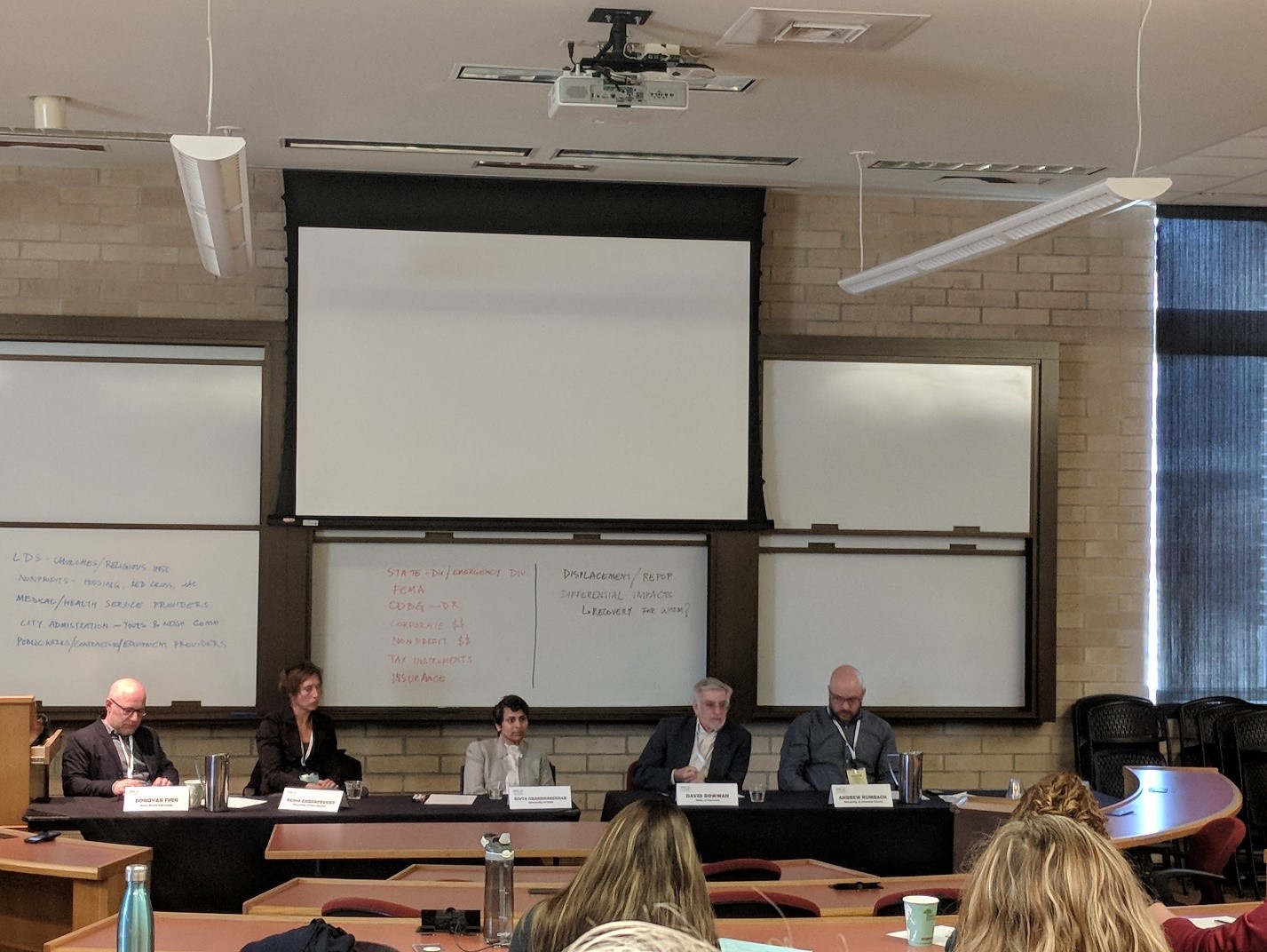2018 RMLUI: Land & Law
by Angela Parker, AICP, CFM, Fairbanks North Star Borough Community Planning, Alaska
This was my first year attending the Rocky Mountain Land Use Institute (RMLUI) in Denver, Colorado. I must say that every session I attended was absolutely fantastic! I wish I could have attended all the sessions. It’s hard to pick a favorite, so here are my top three.
Big Data and Ethics
This session was a panel presented by Ann Bowers, Steve Miller, and Stephen Miller. The discussion centered around the ethics of using data collected by our smartphones. One of the favorite phrases of the session was, “Just because we can use it, should we?” There are several companies that gather data collected by our smartphones and sell it to government entities and businesses. The data is “wiped,” which means that any personal information (name, age, sex, etc.) is not included. However, sometimes the nature of the information gives more detail than necessary; it is up to the user to determine what should or shouldn’t be used.
Technology works well as a tool to get greater participation in local issues. Two questions that need to be answered are “What data should be public?” and “How do we make data available to the public?” Steve Miller suggested that a committee be formed with subcommittees focused on five key areas:
- Data inventory & prioritization
- Open data website
- Metadata standards
- Privacy policies
- Public engagement strategies
Stephen Miller noted that although there are massive amounts of data out there, not much exists in the form of guidance regarding big data and land use. He did mention two guides-- an APA report called “The Impact of AVs and E-commerce on Local Government Budgeting and Finance,” and a book by Neil Richards, Big Data Ethics.
Post-Disaster Long-Term Recovery: Considerations for Creating Resilient Communities
This was another panel session consisting of panelists from several communities in Denver that were affected by flooding in recent years. Several key points were noted throughout all the presentations:
- It is important to have a recovery plan before a disaster strikes. Once that plan is created, it must be reviewed at least annually to be sure it is still useful.
- Develop partnerships with neighborhoods, businesses and other municipalities. Know your vulnerable populations; understand the community.
- State and federal funding are critical to recovery, but it is important that decisions are made locally.
- Procedures for recovery should be aligned with state and federal regulations.
Title Basics
My final top three (last, but not least) was simply titled, “Title Basics.” As a platting officer for a local government, I work with title reports daily. However, I did not completely understand the purpose of title insurance. This session was helpful because the presenters went through and explained each section of the title report and its purpose. I learned that title insurance protects against past events that might cause ownership to be questioned, and that there is only a one-time fee, unlike other insurance (such as auto insurance) that requires regular monthly/yearly payments.
I truly enjoyed the Rocky Mountain Land Use Institute and am hopeful that I will be able to continue attending in the future. The conference was well-planned; keynote speakers were entertaining and informative. Thank you to all those who work tirelessly to bring us these types of educational opportunities.
Angela Parker, AICP, CFM, is the Platting Officer with Fairbanks North Star Borough Community Planning in Alaska. She is the president of the Western Planning Resources, INC. Board of Directors.



